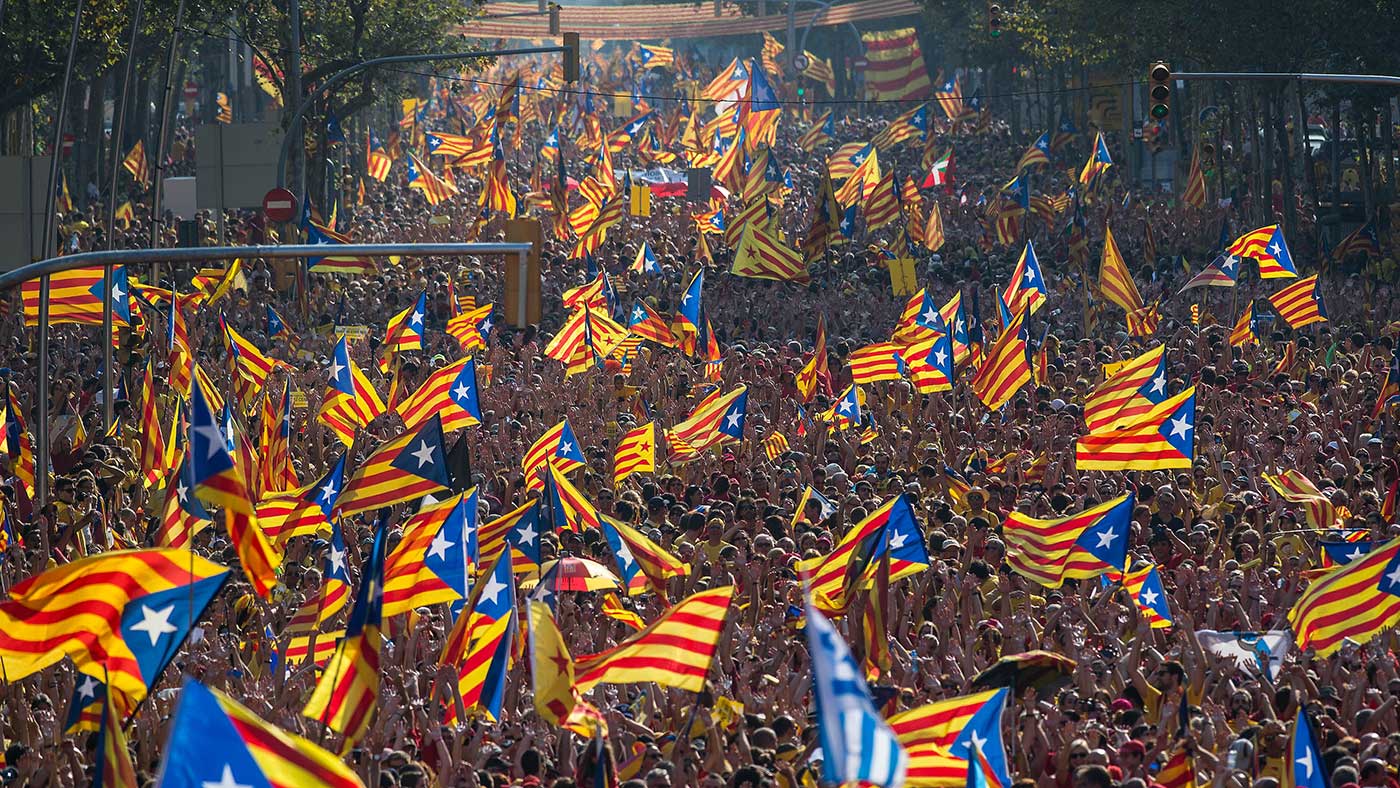Catalonia crisis: Madrid to invoke Article 155
No turning back for Catalan leaders or Spain if Rajoy takes over control of regional government

A free daily email with the biggest news stories of the day – and the best features from TheWeek.com
You are now subscribed
Your newsletter sign-up was successful
Madrid is threatening to dissolve Catalonia’s parliament on Saturday and to hold January elections to defuse calls for independence - but Spanish PM Mariano Rajoy could be creating a new crisis.
Spain's socialist opposition party has backed the government's plan to potentially invoke Article 155 of the Spanish Constitution, which would suspend Catalonia's political autonomy. The region's threat to break away from the rest of Spain - following a resounding "Yes" vote in the banned independence referendum - "has unsettled the euro and hurt confidence in the eurozone’s fourth-largest economy”, says Reuters.
If Madrid proceeds, it will be the first time in Spain’s four decades of democracy that the central government will have effectively sacked a regional government and called for new elections. Article 155 - laid out in just two sentences within the Constitution - allows Madrid to force any of its 17 regions to adhere to the law when disobedience “gravely threatens the general interest of Spain”.
The Week
Escape your echo chamber. Get the facts behind the news, plus analysis from multiple perspectives.

Sign up for The Week's Free Newsletters
From our morning news briefing to a weekly Good News Newsletter, get the best of The Week delivered directly to your inbox.
From our morning news briefing to a weekly Good News Newsletter, get the best of The Week delivered directly to your inbox.
“Its two short sentences appear to give the central government a broad remit to bring a rebellious region to heel, but because it’s never been written into law, there’s no roadmap for action,” says Bloomberg.
Catalonia’s independence referendum, on 1 October, resulted in chaos, with hundreds injured in police clashes in what The New York Times described as “one of the gravest tests of Spain’s democracy since the end of the Franco dictatorship in the 1970s”.
The activation of Article 155 is likely to lead to further civil unrest and arrests in Catalonia. Mass demonstrations have been organised for Saturday by pro-independence activists, reports The Washington Post.
Demonstrators will also be “distributing instructions for peaceful civil disobedience” in the region, with plans to surround government buildings if Article 155 in invoked.
A free daily email with the biggest news stories of the day – and the best features from TheWeek.com
The BBC says regional leader Carles Puigdemont could nominally retain his position as president of Catalonia if autonomy is suspended, but that the central government would probably seek to remove most of his duties and powers.
The showdown comes as a judge of the Spanish National Court, in Madrid, ordered the pre-trial detention of two men under investigation for sedition linked to a Barcelona demonstration in which protesters destroyed police vehicles.
-
 Political cartoons for February 16
Political cartoons for February 16Cartoons Monday’s political cartoons include President's Day, a valentine from the Epstein files, and more
-
 Regent Hong Kong: a tranquil haven with a prime waterfront spot
Regent Hong Kong: a tranquil haven with a prime waterfront spotThe Week Recommends The trendy hotel recently underwent an extensive two-year revamp
-
 The problem with diagnosing profound autism
The problem with diagnosing profound autismThe Explainer Experts are reconsidering the idea of autism as a spectrum, which could impact diagnoses and policy making for the condition
-
 Epstein files topple law CEO, roil UK government
Epstein files topple law CEO, roil UK governmentSpeed Read Peter Mandelson, Britain’s former ambassador to the US, is caught up in the scandal
-
 Iran and US prepare to meet after skirmishes
Iran and US prepare to meet after skirmishesSpeed Read The incident comes amid heightened tensions in the Middle East
-
 Israel retrieves final hostage’s body from Gaza
Israel retrieves final hostage’s body from GazaSpeed Read The 24-year-old police officer was killed during the initial Hamas attack
-
 China’s Xi targets top general in growing purge
China’s Xi targets top general in growing purgeSpeed Read Zhang Youxia is being investigated over ‘grave violations’ of the law
-
 Panama and Canada are negotiating over a crucial copper mine
Panama and Canada are negotiating over a crucial copper mineIn the Spotlight Panama is set to make a final decision on the mine this summer
-
 Why Greenland’s natural resources are nearly impossible to mine
Why Greenland’s natural resources are nearly impossible to mineThe Explainer The country’s natural landscape makes the task extremely difficult
-
 Iran cuts internet as protests escalate
Iran cuts internet as protests escalateSpeed Reada Government buildings across the country have been set on fire
-
 US nabs ‘shadow’ tanker claimed by Russia
US nabs ‘shadow’ tanker claimed by RussiaSpeed Read The ship was one of two vessels seized by the US military